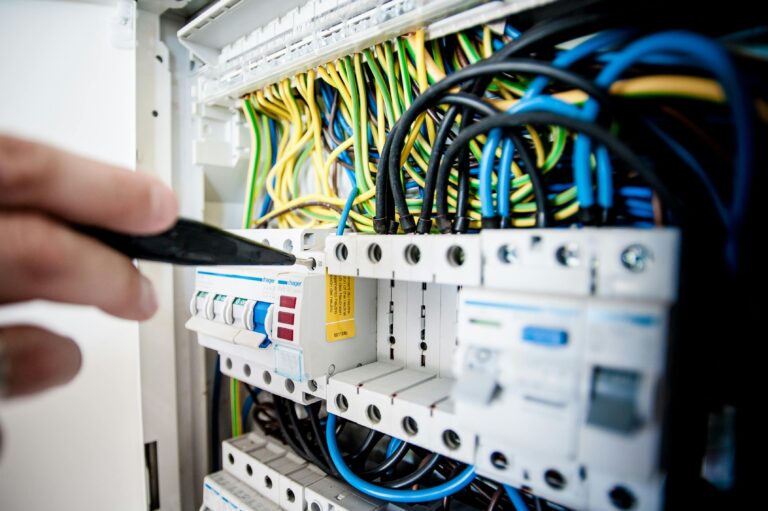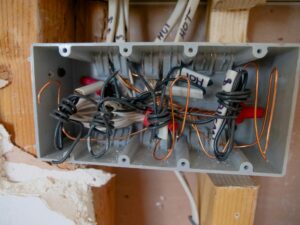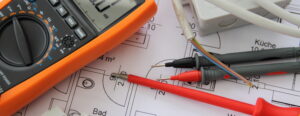What is an EICR?
An EICR, or Electrical Installation Condition Report, is a detailed check-up of your property’s electrical system. It helps to make sure everything from your wiring to your sockets is safe and up to standard.
Think of it as an MOT for your electrics — it checks what’s working well and what might need attention before it becomes dangerous.
This test is carried out by a qualified electrician, who then provides you with a written report showing whether your electrical installation is safe, or if repairs are needed.
Why Do You Need an EICR?
There are many good reasons to get an EICR, whether you’re a homeowner, landlord, or business owner:
Prevent Fires & Shocks – Damaged wires and old electrics can cause fires or electric shocks. An EICR can catch problems early.
Meet Legal Requirements – Landlords in the UK are legally required to have a valid EICR every 5 years. Businesses also need regular checks.
Insurance Protection – Insurance companies may require up-to-date EICRs. If you don’t have one, they may not pay out in case of a fault.
Peace of Mind – Knowing your electrical systems are safe gives confidence, especially in homes with children or elderly people.
Property Sales – If you’re selling a home or buying one, an EICR can be a useful document to prove the state of the electrics.

What Happens During an EICR?
The process involves two main parts:
1. Visual Inspection
The electrician checks cables, sockets, light fittings, fuse boards, and any visible cables. They’re looking for signs of wear, damage, or unsafe DIY work.
2. Electrical Testing
Special tools are used to test the circuits. This includes:
Checking if wires are properly earthed
Making sure RCDs (safety switches) work correctly
Looking for overloading or short circuits
Understanding the EICR Report
After the inspection, you’ll receive a report with codes that show the condition of your electrics:
C1 – Danger present. Immediate action needed.
C2 – Potentially dangerous. Needs fixing soon.
C3 – Not dangerous but should be improved.
FI – Further Investigation required.
If your report contains any C1 or C2 issues, it will be marked unsatisfactory until those problems are fixed.

How Often Should You Get an EICR?
The recommended frequency depends on the property type:
Homeowners – Every 10 years
Rental Properties – Every 5 years (or at the start of a new tenancy)
Commercial Properties – Every 5 years
Industrial Sites – Every 3 years
Buildings with Pools – Every year
Older buildings or properties with known issues might need checks more often.
Who Can Carry Out an EICR?
Only a qualified and registered electrician should carry out an EICR. Look for professionals who are NICEIC-registered or part of a recognised UK governing body. This ensures they meet national safety standards and can legally inspect and test electrical systems.
What Happens After the Report?
After receiving your EICR:
Review the report and look for C1 or C2 issues
If there are serious faults, arrange for them to be fixed quickly
Keep the report safe as proof of inspection
Landlords must provide the report to tenants and local councils upon request

FAQs About EICRs
How long does an EICR take?
A flat or house may take 1–2 hours. Larger homes may take 3–4 hours or more. Business premises will require a tailored quote as they tend to be more complex with more systems to test than residential homes. At Countrywide Electrical Testing we provide free, no obligation quotes tailored to you specific needs so please get in contact if you require a quote for your commercial property.
Is the process disruptive?
The power may be turned off temporarily during testing, but electricians usually keep this minimal.
How much does an EICR cost?
Most EICRs cost between £150–£250 for a typical home. Larger or complex systems may cost more.
Do homeowners have to get one by law?
No, it’s not mandatory for homeowners, but it is highly recommended.
Do I need to prepare anything?
Make sure the electrician can easily access sockets, the fuse box, and other key parts of the system.
Conclusion
An EICR isn’t just paperwork — it’s a smart, responsible way to protect your home, tenants, or business. It’s your safety net for preventing costly problems before they start.
If it’s been a while since your last electrical check — or if you’re unsure whether one has ever been done — don’t wait. Contact Countrywide Electrical Testing Ltd for your EICR whether your a landlord, commercial property owner or tenant or even a residential homeowner. Use the contact form at the bottom of this page or our dedicated contact page.
For a standard residential property, an Electrical Installation Condition Report (EICR) typically costs between £150 and £250.
Properties with larger or more complex electrical systems – such as those with multiple distribution boards, commercial units, or business premises – will require a tailored quote. We’re happy to provide a free, no-obligation estimate based on your specific requirements.

Pingback: How Often Should You Have an EICR? | The Ultimate Guide